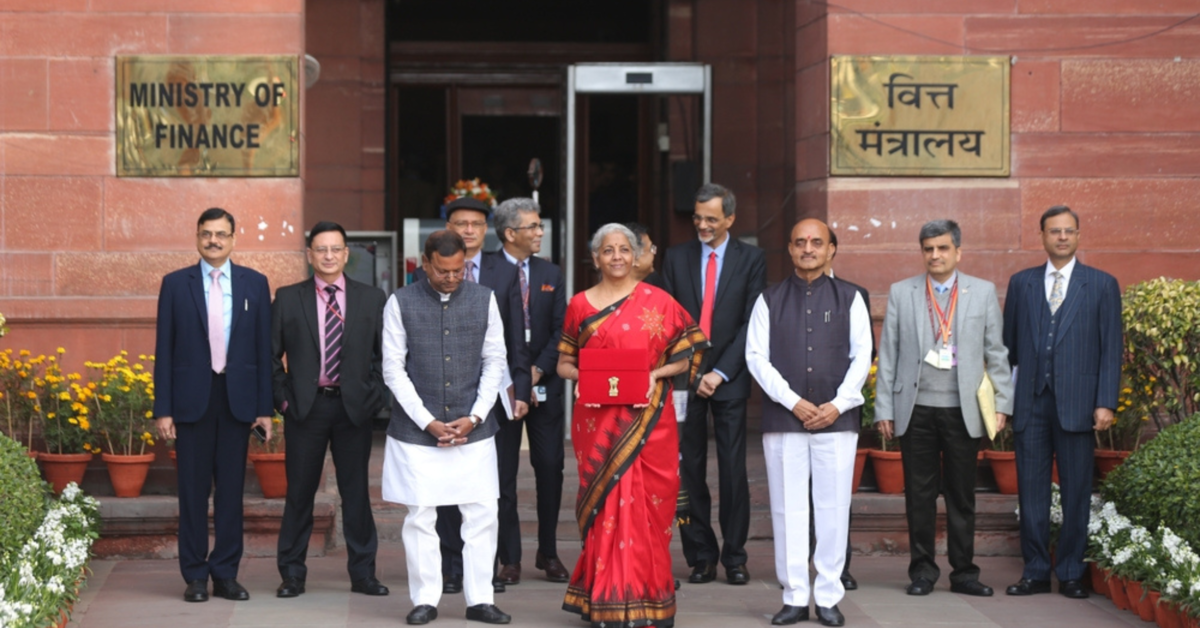India Launches New Foreign Trade Policy
Today, India’s Ministry of Commerce and Industry launched its Foreign Trade Policy (FTP) for 2023-28. The policy has been under discussion for a long time and was formulated over the course of multiple stakeholder consultations. Key focus areas of the government’s new foreign trade policy include a push towards e-commerce exports, trade payments in the Indian rupee, and merchanting trade norms.
The approach to the policy is based on four pillars:
1. Shift from incentives to remission
2. Export promotion through collaboration among exporters, states, districts, and Indian missions
3. Ease of doing business through reduction in transaction cost and e-initiatives
4. Emerging areas: E-Commerce developing districts as export hubs and streamlining SCOMET policy
The policy also has a special focus on promoting green energy. Under the new policy, Battery Electric Vehicles (BEV) of all types, vertical farming equipment, wastewater treatment and recycling, rainwater harvesting system and rainwater filters, and green hydrogen have all been added to green technology products and will now be eligible for reduced export obligation requirements under the Export Promotion Capital Goods (EPCG) scheme.
India's overall exports, including service and merchandise exports, has already surpassed USD 750 billion and is expected to top USD 760 billion this year. The new FTP, which will come into effect on April 1, 2023, aims to increase India's exports to USD 2 trillion dollars by 2030.
Policy Highlights in Key Sectors
E-Commerce
- All FTP benefits will be extended to e-commerce exports: The new policy will focus on e-commerce exports, which will be in alignment with the administration’s goals to improve the ease of doing business and promote the Indian rupee as a global currency. Exports are estimated to grow by USD 200-300 billion by 2030. The value limit for exports through courier services has been increased from Rs 5 lakh to Rs 10 lakh per consignment.
- New operational centers: Operational centers called “Dak Ghar Niryat Kendras” will be introduced throughout the country to work in a hub-and-spoke model with Foreign Post Offices (FPOs) to facilitate cross-border e-commerce and to enable artisans, weavers, craftsmen, MSMEs in remote or landlocked regions to reach international markets. Special outreach and training activities will be conducted for small e-commerce exporters.
- Boosting warehousing facilities: Designated hubs with warehousing facilities will be established in partnership with smaller districts to attain cluster-based ecosystems. The idea here is to help e-commerce aggregators for easy stocking, customs clearance, and returns processing. Processing will also include last-mile activities such as labelling, testing, and repackaging.
- Automation and simplification: In alignment with the government’s aim to boost digitization, the policy renews focus on technology enablement. It aims to build secure and easy IT systems in the Department of Commerce and pushes for digitization of applications, including automatic approval of various permissions from the FTP. All authorization redemption applications will be made paperless.
- Consultative approach: There will be a consultative approach with ministries on formulating guidelines for exports for all relevant sectors. The Department has also moved on from the traditional approach of a five-year plan for FTP policies towards a long-term focus with periodic changes and additions. The Commerce ministry will be undertaking a massive outreach globally in the next four months to boost exports.
- Shift from incentives-based system: There will be a shift towards a remission and entitlement-based regime.
IMPACT ON BUSINESS
1. Inclusion of all e-commerce businesses in the foreign trade ecosystem will have a positive impact on brand visibility and partnerships with stakeholders.
2. District operational centers will empower business partners in remote areas without investing in a physical set-up to reach customers. Facilitation of cross-border e-commerce will enable indigenous products to reach international markets. Training activities will also ensure a significant increase in the number of partners who can align with e-commerce platforms, and their visibility will also be enhanced alongside larger exporters.
3. Widespread use of warehousing facilities in the country will have a positive impact on the supply chain ecosystem. There will also be a surge in profitable distribution networks throughout the country.
4. The enablement of technology and better IT systems will help e-commerce platforms better penetrate markets with ease without procedural hurdles. In addition, further digitization will help with faster online distribution.
5. There will be less rigidity in regulations as the administration has assured a consultative approach.
Infrastructure/Logistics/Supply Chain
- Creation of institutional mechanisms: The FTP will establish institutional mechanisms at both state and district levels to strategize exports, including the State Export Promotion Committee and the District Export Promotion Committee. In addition, the plan will create District Export Action Plans (DEAPs) that outline specific strategies to promote identified products and services.
- Infrastructure and logistics development: The FTP aims to address infrastructure and logistics bottlenecks that impede exports. Districts will focus on the development of logistics, testing facilities, and connectivity for exports, as well as other export-oriented ecosystems, and will converge on ongoing schemes to support these initiatives.
- Cluster-based economic development: Towns of Export Excellence (TEE) will be recognized based on their export performance, and recognition will be granted to these industrial clusters. As one of the incentives, the Common Service Providers facility will be entitled to Authorization under the Export Promotion Capital Goods (EPCG) scheme, which can help increase the competitiveness of the cluster and provide an enabling environment. Additionally, this arrangement will allow exporters to avoid owning all the infrastructure required for the conversion of inputs to final export products.
- Manufacturing: Additionally, the Prime Minister’s Mega Integrated Textile Region and Apparel Parks (PM MITRA) scheme has been added as an eligible scheme to claim benefits under the Common Service Provider scheme of the EPCG scheme.
IMPACT ON BUSINESS
1. Establishment of institutional mechanisms across districts will help improve first and last-mile connectivity.
2. A surge in the logistics and testing facilities will help ensure a competitive export infrastructure.
3. Cluster-based ecosystems will help in addressing supply-chain bottlenecks and will streamline engagement with stakeholders.
4. Better incentivization of businesses is more likely to take place if there is a structured approach to improving manufacturing.
Pharmaceuticals
- From incentives to remission: The remission of Duties and Taxes on Exported Products (RoDTEP) Scheme gets extended to Chemicals and Pharmaceuticals.
- Continuation of Duty Exemption Schemes: Duty-Free input/raw material from an overseas supplier or through domestic suppliers will be guaranteed through the Advance Authorization / Duty Free Import Authorization scheme. FTP 2023 supports technology upgrading through duty-free import or indigenous sourcing of capital goods under the Export Promotion Capital Goods (EPCG) scheme.
- Focus on emerging sectors: FTP 2023 streamlines the SCOMET (Special Chemicals, Organisms, Materials, Equipment, and Technologies) policy. The policy for export of dual-use items under SCOMET is now consolidated in one place for ease of understanding and compliance by industry.
IMPACT ON BUSINESS
1. The policy will boost local manufacturing and make exports competitive.
2. Its focus on emerging sectors will help make the import of API (active pharmaceutical ingredients) competitive.
3. The new foreign trade policy is a boost to export promotion through collaboration between exporters, states, districts, and Indian Missions to improve the ease of doing business.
4. The FTP will ease the compliance burden on businesses.
Agriculture
- The dairy sector is to be exempted from maintaining Average Export Obligation.
- Fruit and vegetable exporters are being included for double weightage for counting export performance under eligibility criteria for Status House certification.
- It focuses on simplifying policies to facilitate the export of dual-use high-end goods/technology such as UAVs/Drones.
IMPACT ON BUSINESS
1. The policy is aimed at boosting manufacturing and production of allied agricultural activities like dairy.
2. Exemption of the dairy sector from export obligations will support technology upgrading in the business.
3. In addition to the MSME sector, which already gets double weightage, the new FTP has given similar status to the fruits and vegetables sector to help improve quality controls and safety standards for access to bigger markets.
4. The policy will foster the exchange of technology and improvements in standards for applications in the agriculture sector.



